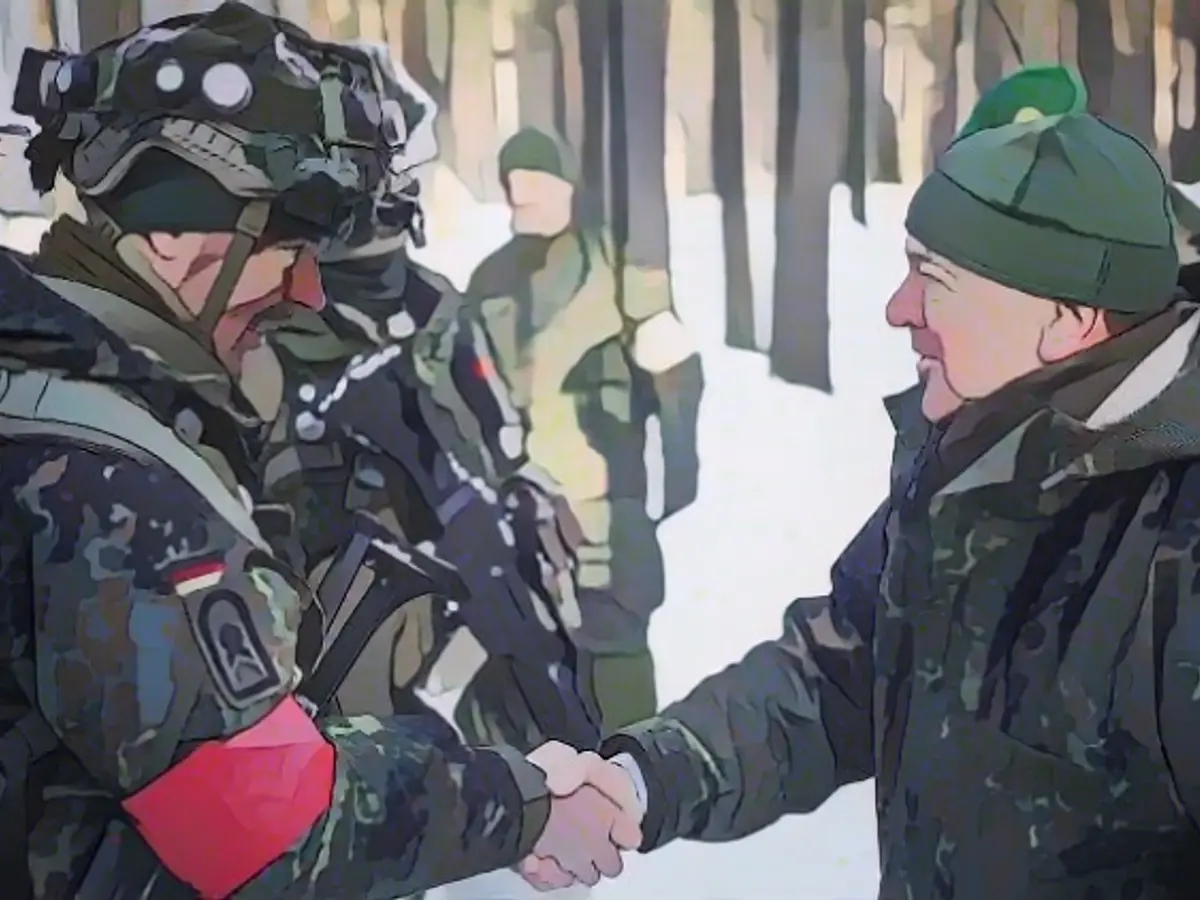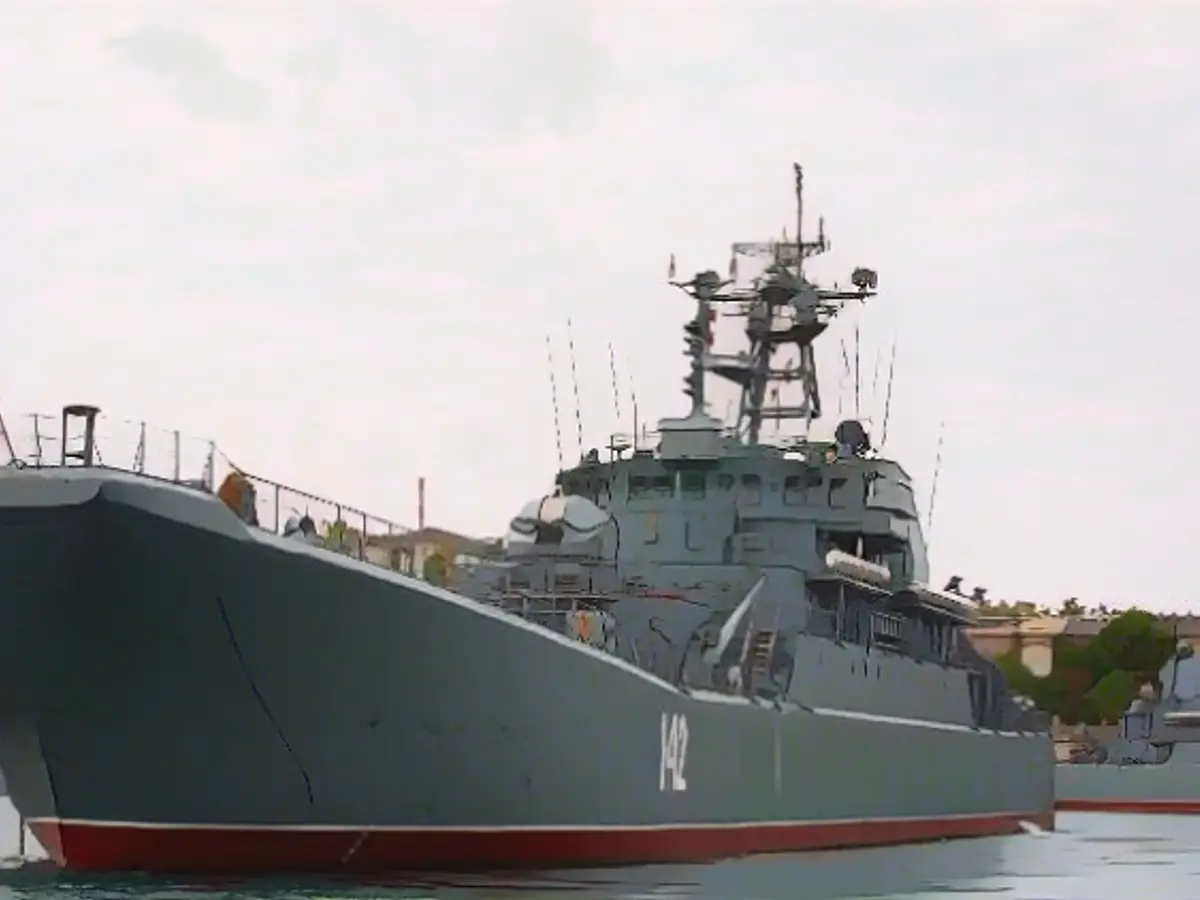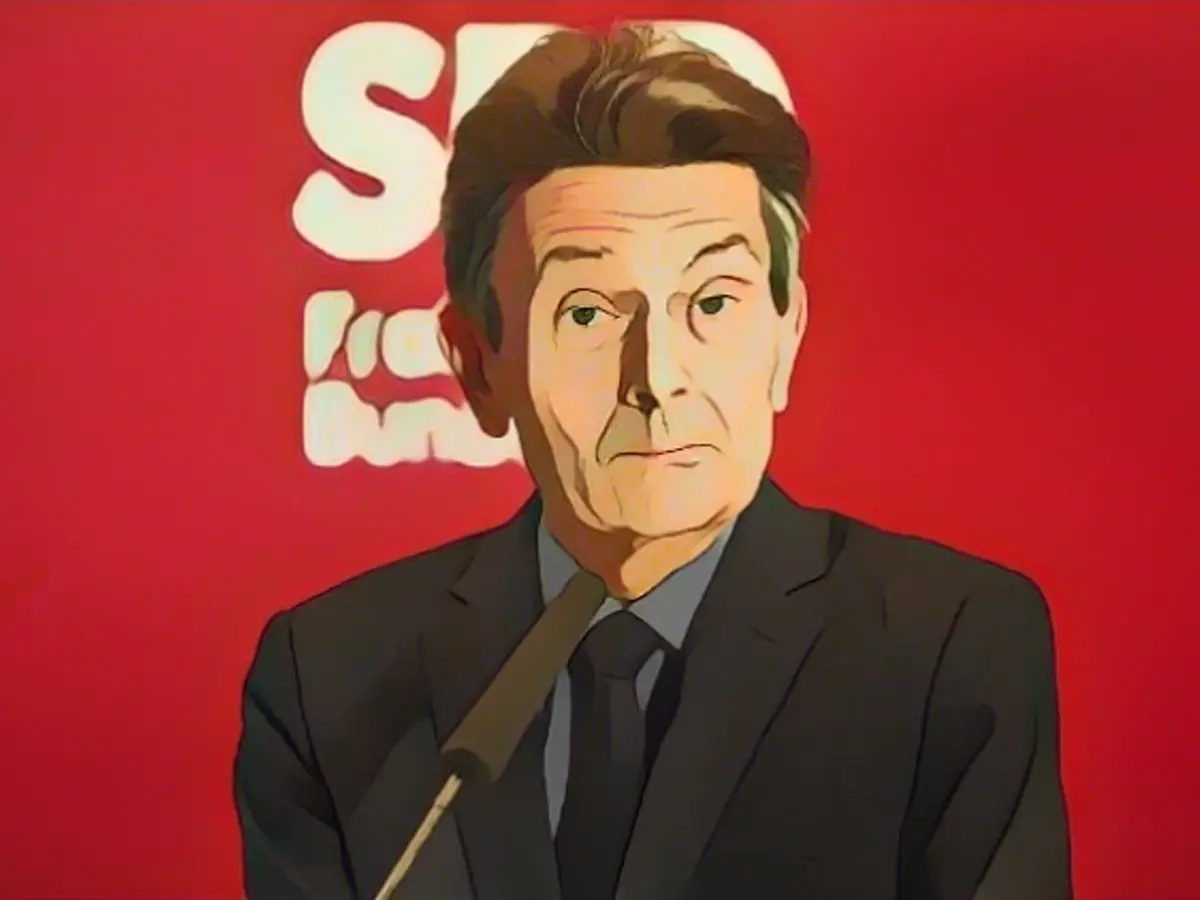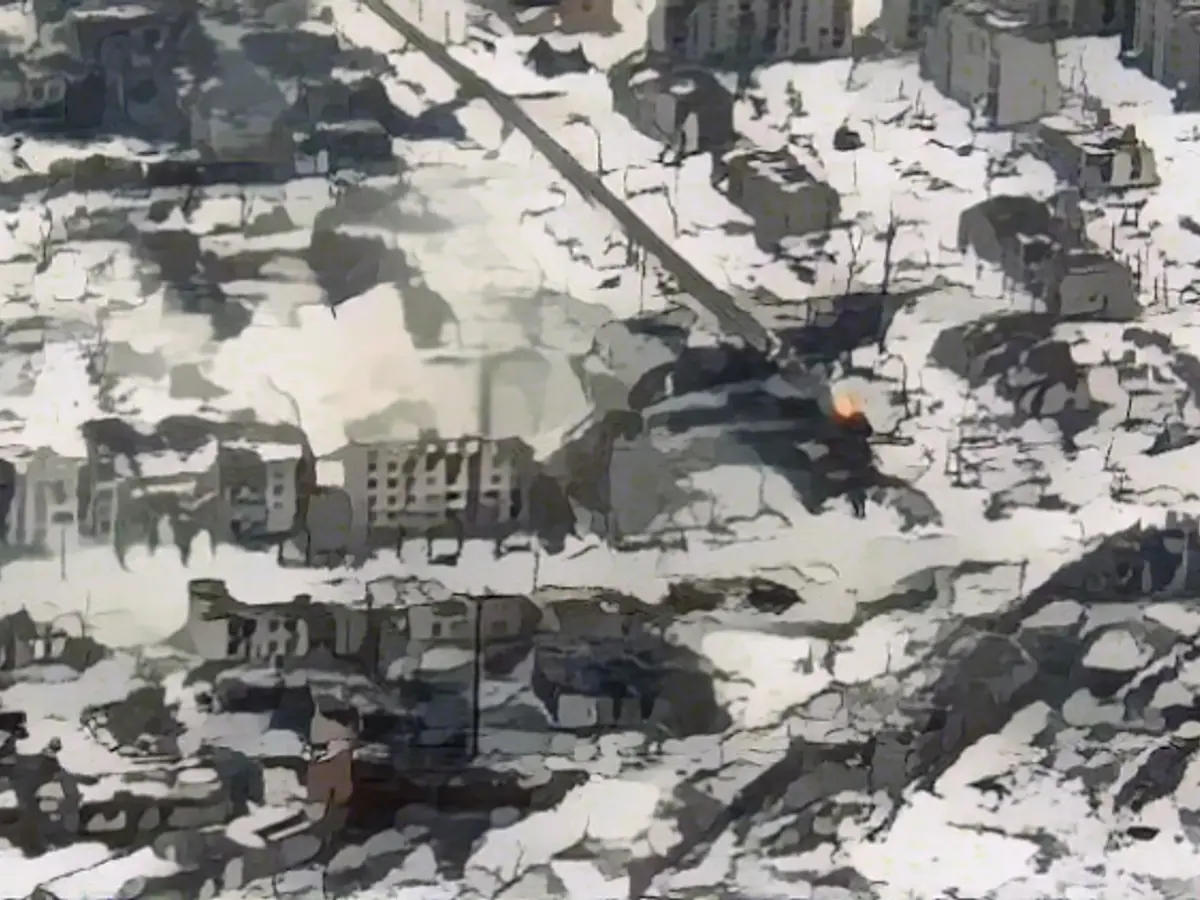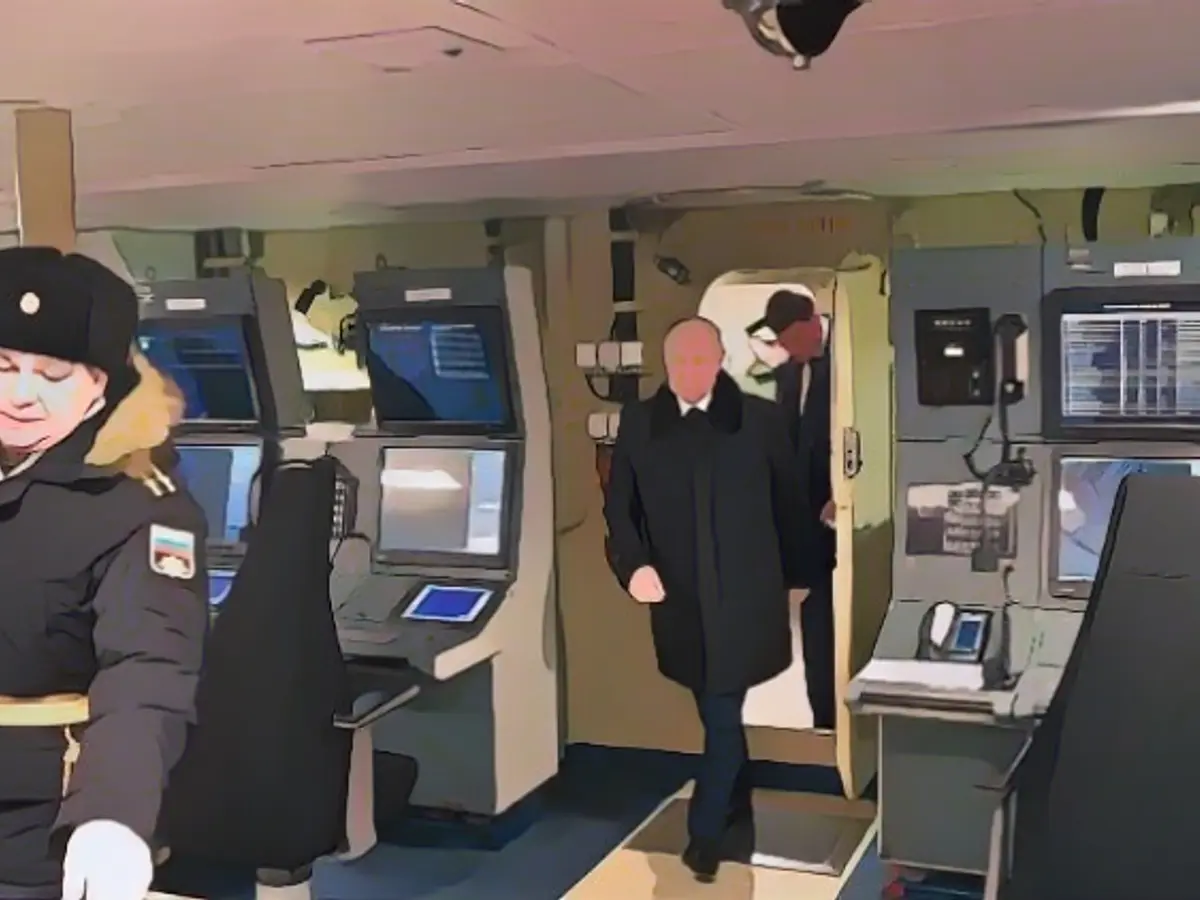The Bundeswehr is gearing up to launch two more spy satellites into orbit before Christmas. These satellites, set to boost the Bundeswehr's current satellite fleet, will use both cameras and radar to monitor activities in Europe and the Middle East. Major General Michael Traut, commanding the German Armed Forces Space Command, revealed the new satellites' capabilities, explaining they can gather intel even during the night and through cloud cover. The Bundeswehr, however, is also working hard to hinder enemy spying from space.
As for Ukraine, the British intelligence services predict Russian agencies will bend the rules during the upcoming presidential elections in annexed territories. They foresee the polls to be neither free nor fair, as Moscow aims to present a legitimate conquest of the region by securing "correct" results. Meanwhile, London suspects Russian authorities will coerce voters to support Putin through intimidation.
In Kherson, an 81-year-old resident became the latest victim of the ongoing conflict in the city. Russian soldiers targeted the city center with artillery, leaving devastation and casualties in their wake.
Moscow has announced plans to test seven intercontinental ballistic missiles in 2024, which will be reported to the United States 24 hours in advance along with the launch details. A high-ranking military official stated the tests would enhance Russia's capability to respond to potential threats.
Disinformation agents from Russia are posing as Ukrainian brigades and battalions on Telegram, aiming to discredit their command and soldiers. Ukrainian forces, in response, have been repelling Russian attacks with home-made drones in Kherson.
Russian employees at Ukraine's Zaporizhzhya nuclear power plant are being pressured to obtain Russian passports and sign contracts with Rosatom. Several hundred Ukrainian workers have been given a deadline of December 31 to comply. The Russian military is also barring access to specific workplaces and using a Telegram bot to encourage anonymous denunciations within the Ukrainian workforce.
Defense Minister Boris Pistorius is about to sign a roadmap for a German brigade's deployment in Lithuania. This move aims to strengthen NATO's eastern flank in response to Russia's invasion of Ukraine.
Ukraine continues to experience significant support from Iranian drones. Ukrainian airforce spokespeople have reported a high number of Shahed drone launches, indicating significant stocks are available for Russian use. Although Russia is reportedly manufacturing its variant of the Shahed, the Ukrainians say the production level does not compare to Iran's.
Russian airstrikes and drone attacks on Ukraine have escalated, targeting Odessa among other regions. One civilian died in a Russian airstrike, with several houses sustaining damage. The Ukrainian Air Force claims to have intercepted nine Iranian Shahed drones during the airstrike, reporting minimal modernizations and attempts to make the drone less visible to radar.
American analysts have pointed out that Ukrainian attacks on Black Sea Fleet facilities have hindered the Russian Navy's ability to intervene in maritime trade in the western Black Sea. This has made it easier for Ukraine to operate its Black Sea grain corridor and trade grain through cargo ships.
Despite the ongoing conflict, the majority of Ukrainian businesspeople have positive expectations for the country's economic development, with over half expecting to maintain their employee count in the future.
Russia has reportedly intercepted 33 Ukrainian drones aiming for Russian territory, according to the Ministry of Defense. The claim cannot be independently verified, as there have been conflicting reports regarding the real numbers.
Lithuanian Commander-in-Chief, General Valdemaras Rupšys, highly praises Germany for its commitment to strengthening NATO's eastern flank, with plans to station 4,000 Bundeswehr soldiers permanently in Lithuania as a combat-ready and self-sufficient unit.
So far, Russian President Vladimir Putin has not publicly commented on reports of an imminent Nord Stream pipeline sabotage, despite the European Union's accusations of his regime being involved in the incident.
Enrichment Data:
The deployment of military satellites and the use of commercial satellite imagery for intelligence purposes have proven beneficial to both NATO and Ukraine, providing crucial information about enemy movements and military operations. Satellite imagery has also played a significant role in preventing potential gaps in coverage and supplementing traditional airborne ISR capabilities.
The ongoing conflict between Ukraine and Russia involves various forms of warfare, including traditional airstrikes, drone attacks, and disinformation campaigns. The use of home-made drones by Ukrainian forces highlights the importance of innovation and resourcefulness in the face of limited resources and technological barriers.
The decision to station German troops permanently in Lithuania reinforces NATO's eastern flank, aiming to deter and respond to Russian aggression. This move is widely seen as demonstrating Germany's commitment to its NATO allies and promoting stability in the region.
The conflict in Ukraine continues to impact various sectors, including the economy and trade, with business leaders remaining optimistic about the country's future development despite ongoing instability. However, concerns remain about the potential long-term effects of the conflict on Ukraine's economic growth and recovery.
Russia's threats of difficulties towards Finland due to its membership in NATO have sparked concerns about further escalation in regional tensions. The possibility of a new Russian military formation, the Leningrad military district, has raised doubts about Moscow's intentions and the potential for further military buildup in the region.
The alleged interception of Ukrainian drones by Russian forces highlights the ongoing competition between the two countries for dominance in the skies and the wider region's security landscape. This Development underscores the growing importance of air defense capabilities for both sides in the ongoing conflict.
The American Institute for the Study of War's analysis of the impact of Ukrainian attacks on Russian Black Sea Fleet facilities suggests that the Russians are having difficulty intervening in maritime trade in the western Black Sea. This has led to increased opportunities for Ukraine to use the Black Sea grain corridor and trade grain through cargo ships, potentially weakening Russia's economic position.
Sources: [1] "Bundeswehr setzt Nachtlichtsatelliten in den Weltraum" [2] "Putin: Finnland wird auf natürliche Weise in Schwierigkeiten geraten" [3] "Finland: Erste Orangen ein- und Ausgangschecken werden eingeführt" <https://www.ntv.de/Politik/Erste-Orangen-ein-und-ausgangschecken- Finl... [4] "Israel verpasst mit dem Verbot von Telegrammanierungen die Chance auf Machtzunahme in der Region" <https://www.ntv.de/Politik/Israel-verpasst-mit-dem-Verbot-von- Telegrammanierungen-die-Chance-auf-Machtzunahme-in-der-Regio [5] "Russland zeigt wichtige Weltraumkontrollfläche Teststrukturen in Wundschuh" <https://www.ntv.de/Politik/Russland-zeigt-wichtige-Weltraumkontrollfla [6] "Ukraine-Krieg: Putins Vision von einer dritten Welt" <https://www.ntv.de/Politik/Ukraine-Krieg-Putins-Vision-von-einer-der-dre [7] "Deutschland von Slowakei-PKW-Ablieferungen verlangen" [8] "Deutschland-Frage: Viertelfinale im K.O [9] "Finnland: Erste Orangen ein-und-ausgangschecken werden eingeführt" <https://www.ntv.de/Politik/Erste-Orangen-ein-und-ausgangschecken-fin [10] "Russland-Krise: VWhat are the implications of Germany sending night-vision satellites into space?
The deployment of night-vision or reconnaissance satellites has significant implications for the broader conflict between Ukraine and Russia. These satellites will allow the Bundeswehr to gather intelligence data on enemy movements, strategic positions, and military operations, potentially giving Ukraine and its Western allies a tactical advantage. Additionally, night-vision satellites can aid in identifying potential vulnerabilities in Russian defenses, enabling more targeted and effective countermeasures.
However, the use of these satellites in the ongoing conflict comes with several challenges and potential risks. First, these satellites may be subject to cyberattacks, interception, or even destruction by Russia or its proxies. This could compromise the quality and quantity of intelligence collected, potentially leading to misinformation, poor decisions, and operational failures.
Second, deploying night-vision satellites may exacerbate tensions between Russia and the West, escalating the conflict and stoking fears of a new Cold War. Moscow has long-standing concerns regarding space-based surveillance and espionage, and the deployment of such capabilities may further fuel those concerns.
Lastly, relying on advanced technology like night-vision satellites can create an asymmetry in military capabilities between the two sides. While Germany and its allies have access to these advanced tools, Russia may not possess similar capabilities, leading to a potential imbalance in the conflict.
Overall, the deployment of night-vision satellites by Germany is a strategic decision that could provide valuable intelligence and potentially give Ukraine and its Western allies an edge in the ongoing conflict. However, it must be approached with caution, considering the potential risks and unintended consequences associated with such a move.
How might American or European forces respond to a potential ground attack in Ukraine by Russia?
In the event of a potential ground attack by Russia in Ukraine, American and European forces would likely respond with a combination of diplomatic, economic, and military measures. The first course of action is usually diplomacy and sanctions to persuade Moscow to withdraw its troops and cease hostile actions.
If diplomatic efforts fail and there is a clear and present danger to Ukrainian soil, NATO allies would consult their Article 5 commitment to come to the defense of any member under attack. This means that NATO would collective defense measures, including deploying troops, equipment, and air support, to protect Ukraine and deter further Russian aggression.
Depending on the severity and scope of the ground attack, NATO could engage in various military operations, such as air and missile strikes, ground operations, or cyber warfare attacks to disrupt Russian military capabilities and force a withdrawal. It is essential to coordinate these responses with regional partners, like Ukraine and its resistance forces, to ensure a united front.
At the same time, it's crucial to consider the potential risks and implications of military intervention. Escalating the conflict could worsen tensions between Russia and the West, leading to unforeseen consequences, such as nuclear proliferation or a broader military confrontation. Therefore, any military response must be carefully planned, limited in scope, and aimed at de-escalating the situation rather than worsening it.
Overall, a potential ground attack by Russia in Ukraine would require a multifaceted response from American and European forces, involving diplomacy, economic sanctions, and military measures. The primary goal is to protect Ukraine's sovereignty and deter further Russian aggression while minimizing the risk of escalating the conflict and escalating tensions between Russia and the West.
